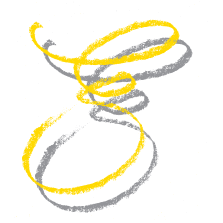A concert performance can be almost a contradiction in terms for opera: music built to hold a powerful narrative, rich with visual effect and dramatic energy, suddenly finds itself all alone on stage, denuded of props and scenery. Without the distraction of stage business, without the visual aid of stage action, the music can – and must – work all the harder to project the story into our minds. In short, it’s a brave enterprise for musicians (and requires not a little endeavour on the part of the audience). The Saffron Opera Group took their courage into their own hands to produce an intense concert performance of Das Rheingold. With a full orchestra and an exciting selection of singers assembled, adrenalin was running high: the pressure of expectation from the huge audience radiated towards the stage, almost palpable from the outset. Happily, we were not disappointed.
The Saffron Opera Group Orchestra, including four Wagner tubas visiting from the Tony Halstead Horn Ensemble, made a warm and confident sound, conducted with energy by Michael Thorne. Amid much skilful execution, some passages stood out in particular: the music of Alberich’s transformations, from thunderous Riesenwurm to tittuping toad, was brilliantly and distinctly evoked, while Loge’s fire theme felt brightly chimerical, and our journeys to and from Nibelheim were positively cinematic, moments where it was a true delight to shut your eyes and dive deep inside the music; later, the sudden warmth flooding back at the restoration of Freia to the gods was extraordinarily beautiful. I questioned occasional moments: the evanescent rhythms of the opening bars, as Wagner’s breathing, acrobatic first theme resolves itself into the flashing, sparkling torrent of the Rhine, didn’t quite surface as I’d usually expect (though the strings were soon flowing with vigour), while Nibelheim’s slave-driven anvils took time to settle into their relentless texture. Nevertheless, performed as tradition requires without any interval break, Rheingold came across clearly in almost three hours of excellence and invention.
We were treated throughout to some exceptional singing from our principals, captained first and foremost by Nicholas Folwell’s memorably villainous, superlatively clear Alberich, who drove the atmosphere with a vibrant performance of outstanding quality, underpinned by crisp enunciation and superb projection. Alberich’s renunciation of love was deeply felt and powerfully portrayed, while his vicious rage at his downfall was genuinely scary, and his curse of the ring spinetingling. Jeremy White’s warm, thoughtful, bespectacled Wotan made the most of his divine arrogance and incipient vulnerability, as the end of the gods is foreshadowed and his curiosity awakened by Erda (elegantly sung by a graceful Deborah Humble, not so much Mother Earth as Earth’s diplomatic wife). Sarah Pring’s wonderfully poised Fricka, conveyed with relaxed power, was more maternal than acerbic: this unusual approach paid dividends, turning Wagner’s caricature of whinging wife into an appealing woman keen to save a real marriage, a stunning contribution to the whole.
Richard Roberts was a superb Mime, beautifully sung and deftly characterised, with a keen sense of delicate humour as we watched his handwringing, face-screwing fear of dark-minded Alberich, keeping Mime intriguingly brittle. We had a luxury Donner from Toby Girling, exhibiting fervent passion with energy and control, coping well with an exaggerated slowing from the orchestra in his Song to the Winds. Adam Tunnicliffe made a glorious Froh, singing with a nice sense of attack and smooth vocal reach. Inga-Britt Andersson was a supremely focused, sweet-toned Freia, her skilled acting making this small but crucial role count.
Among the Rhinemaidens, Victoria Simmonds particularly shone as Wellgunde, flirtatious and cruel by turns, beside Gail Pearson as a clear-voiced Woglinde and Niamh Kelly as a richly-toned though occasionally hesitant Flosshilde. This trio felt nicely balanced, the different colours of their voices all complimenting each other in unison.
Stephen Rooke’s Loge was skilfully executed, but didn’t have the dramatic panache of other Loges I have seen, allowing Alberich to steal the show for once. Loge arrived on stage seeming tense, preoccupied and defensive, and took a long time to unwind into the supreme political animal, master of words and situations, which we know him to be. However, his retelling of Alberich’s theft of the Ring proved masterly.
Julian Close’s Fasolt was resolutely aggressive at all times in acting and in his singing, which certainly made for a thuggish Giant, but muted some of Fasolt’s more interesting characteristics: his love for Freia was barely, if ever, in evidence; his singing was often slightly too loud, just overbalancing the overall sound, though the interesting edge in Close’s voice gave Fasolt plenty of grim determination. Robert-John Edwards (a last-minute replacement due to illness) made his way through Fafner with accuracy and engaging style, but without quite the vocal punch needed to dominate Saffron Hall’s acoustic.
In all, this largely polished and assured account promises well for the forthcoming cycle, which will continue with Die Walküre in October, with Siegfried and Götterdämmerung planned for February and September 2017 respectively.
